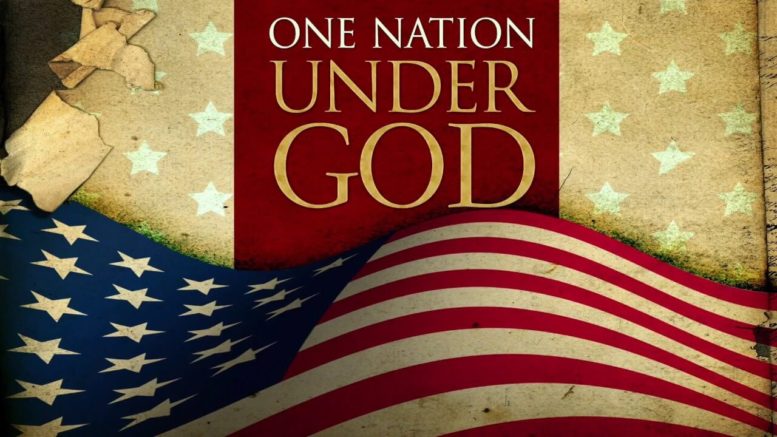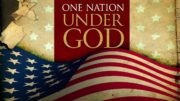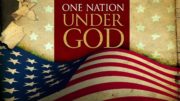The following is an excerpt covering the writing of John Locke from my forthcoming book, The Light & the Rod. It uses writings of Machiavelli, Hobbes, Spinoza, Locke, and Rousseau to demonstrate the outcome of trying to reconcile Judeo-Christian ideas with pagan ones, particularly allowing government to put its hands on education. But this too is nothing new. We can trace this idea back to the period just before the Renaissance and Enlightenment. Pagan philosophy was only preparatory for Christian ideas; it is not consistent with them. I hope you enjoy reading it as much as I enjoyed writing it.
John Locke (1704)
John Locke was born the same year as Spinoza (1632) in England, and witnessed many of the same events as the latter. He was an academic, entering Oxford in 1652 where he largely stayed until ejected in 1684. He was 52 before any of his writings were first published. Locke also counseled two of England’s powerful political figures of his day, the Earl of Shaftesbury off and on from about 1667 to 1682 and Lord Sommers from about 1694 until 1700.
Locke’s ideas are in some ways different from the others mentioned above. However, he wrote at a time when Hobbes and Spinoza’s work held significant influence. Some of Locke’s ideas support the biblical principles for governance, but he also incorporated pagan ideas expressed by both Hobbes and Spinoza into his writing.
Locke’s View of the Problem
I think Locke describes the problem in the following two passages.
“All Power on Earth is either derived or usurped from the Fatherly Power, there being no other Original to be found of any Power whatsoever: For if there should be granted two sorts of Power, without any Subordination of one to the other, they would be in perpetual strife which should be Supreme, for two Supremes cannot agree.”[1]
“This is the unhappy agreement that we see between the church and the state. Whereas if each of them would contain itself within its own bounds, the one attending to the worldly welfare of the commonwealth, the other to the salvation of souls, it is impossible that any discord should ever have happened between them.”[2]
Locke summarized the problem quite nicely. All power comes from God; it is when man turns away from God that discord enters, because institutions turn from serving their people to trying to rule them. Man turns from Augustine’s city of God; settling for the city of man.
Locke and the Biblical Model
Some areas of alignment between Locke’s ideas and biblical governance principles include;
- Creator and creation are separate.[3]
- God is the source of all earthly power.[4]
- God appointed government.[5]
- Government’s purpose is preserving every man’s rights and property.[6]
- All men have the same rights.[7]
- Natural rights are not forfeitable.[8]
- Man’s freedom is not simply a license to act, but man’s actions are to be directed as he is accountable for his actions.[9]
- There exist separate spheres of civil and religious power represented by the state and church respectively.[10]
- The civil sphere’s power is the same everywhere and it either has power over nothing or everything. There is no such thing as partial power.[11]
- Separation of power within the civil sphere and this power to be directed toward the public good.[12]
- The people hold ultimate earthly power over the legislature. Governing requires consent of the governed.[13]
However, Locke begins with Hobbes states of nature and war for man.[14] He also builds on Spinoza’s idea of toleration as Christianity’s primary characteristic.[15] These ideas lead Locke into a different attempt to reconcile pagan and Christian ideas. These attempts fail because reconciliation is not possible. Man can only serve himself or God—one or the other. The second century church father Tertullian warned about Christians even considering pagan ideas. He feared pagan ideas’ would corrupt Christianity. Such a corruption would impact any society built upon Christian principles. Those principles require religious power effectively carrying out its education duty and the people choosing to fulfill their true purpose, requiring them turning toward God to strive for the city of God rather than settling for the city of man.
Some Pagan Corruptions
Some inevitable outcomes of Locke’s attempts to reconcile Christian governing principles with pagan ideas include;
- Related to the church;
- Mere tolerance replaces agape (love as charity) as its primary characteristic,[16]
- Churches become manmade organizations, each creating its own rules,[17]
- Everyone is orthodox unto themselves,[18] man freed from domination of one another in matters of religion,[19] allowing man to pick and choose which of God’s requirements he decides to recognize and how to follow, and
- Church is relegated to only the public worship of God[20] and saving souls.[21]
- A pagan notion of charity exists through his property assumptions.[22]
- There is an absolute separation between the spheres of church and state;[23]
- Law orders society rather than moral individual decision making.[26]
- Natural rights become overwritten by positive human law;[27]
- Self-preservation and preserving his property become man’s primary duty.[28]
- Individuals entering into a community give up all power necessary to the ends for which they unite.[29]
- Property becomes about ownership and enjoyment without the duty of stewardship, a byproduct of relying on positive laws and manmade rights.[30]
The result is Locke seeks a different way to optimize the city of man. Christianity’s chief characteristic is love, love voluntarily expressed by virtuous acts of charity. Virtue consists of man discerning good from evil. Christ is head of His church; His requirements govern the Church. There is only one God; therefore there is only one Church, regardless of the number of denominations man decides to create for himself.
Implications
Locke’s separation between the spheres of church and state is so absolute there is no room for one to influence the other. It is true both powers are to be turned toward God in serving the people. However, religion’s primary responsibility is to educate the people in what it means to live according to God’s word—to be God’s people. Children’s education is primarily the parents’ responsibility. This education is to influence government by inculcating morality within society. Locke’s ideas result in governance (the civil sphere) becoming insulated from that morality. In a society built on the idea of negative natural rights, his approach can only end in the state’s failure as the morality necessary to maintain it diminishes until society falls apart. Witness what we see occurring within America today.
Transferring Negative Rights
Negative rights identify actions man is to refrain from doing. They cannot be transferred to another. It is illogical. Only positive human rights relying on the capacity of performing some action can be transferred. The phrase ‘positive law’ appears twenty times within Locke’s Treatises. The term negative is not used at all. Using positive laws to transfer negative natural rights to government is another way society’s morality is undermined. Changing our natural right’s nature results in corrupting both justice and virtue, replacing both with pagan notions.
Power Transferred
According to Locke man has two powers in the state of nature. Both are transferred to government when man enters society. The first power is his right “to do whatever he thinks fit for the preservation of himself and others within the permission of the Law of Nature.” The second one is “the power to punish the Crimes committed against that Law.”[31] There are at least two problems with this idea.
First, man has at least one additional power. As man’s natural rights are almost exclusively negative and God is his creator, he first has the power to use his free will to choose whether he will follow God or not. If he does, then the negative natural rights he possesses require him to make good moral choices as negative rights only tell man what he is to refrain from doing.
Within a negative rights based society, law serves two functions. The first to punish for violating the rules society creates. These rules include not only law, but customs, standards of behavior, common practices, etc. The second function is to correct instances where following society’s rules results in injustice. Its use should be limited in a moral society where good decisions are made more frequently.
As to the second problem, the first power Locke cites is contained with man’s power of choosing whether to follow God or not—it is a right of conscience which man cannot transfer to another. Man is responsible for his choices, as Locke admits. Consider in America’s founding the powers given to the federal government concerned relationships with foreign countries and disputes between the states. None of these areas could adequately be addressed by the states themselves or their individual citizens. The second power to punish another is given up when man enters society. Transferring the power to punish is not a problem as regardless of whether man follows God or not, he is punished for violating society’s rules. This is accountability for our choices.
Results
Locke’s approach also places political power above religious, just in a different way. Government is left intact as a single power; granted there are limits and multiple levels. However, it is power derived from the people as a whole—consolidated. Religious power, on the other hand, rests with individuals who choose what, if any, faith organization they join. In effect, this leaves the individual to stand alone against the state’s power in matters touching on religion or conscience (i.e., natural rights).
Gone is the church’s ability to serve as a counterweight against the state regarding moral matters as exists in the biblical governance model America was founded upon. The end result is the inevitable consolidation of political power and a decrease in morality supporting that shift, often by bribing groups using positive law and public programs. Man’s migration from the city of God to the city of man—based on man’s changeable moral values rather than God’s unchangeable ones.
The State’s Dissolution
Before closing, most interesting are Locke’s ideas on the dissolution of government in the final chapter of his Treatises. We will return to these ideas in the final chapter, but will lay them out now as another implication. Settling for the city of man always leads to a government’s dissolving. It can be no other way as true justice can no longer be found as law orders society rather than moral individual decision making. This creates division, promotes vice, and civil strife. A third governance model is created, to be laid out in a moment, one contrary to both man’s nature and purpose of becoming good through individual voluntary acts of charity.
Types of Dissolution
Locke distinguishes society’s dissolution from that of its government. Society can be dissolved externally by invasion, or internally through government itself interfering with or abandoning its functions. None of these appear relevant to America today, although a case can be made for the legislative branch abandoning its trust.
However, Locke cites one more instance where government is dissolved, when its legislative or executive functions act contrary to the trust placed in them by the people. This occurs when the governing power acts against the people by making themselves, or any part of the community, arbitrary masters of the lives, liberties, or fortunes of the people.[32] “Whenever the Legislative … either by Ambition, Fear, Folly or Corruption, endeavor to grasp themselves, or put into the hands of any other an Absolute Power over the Lives Liberties, and Estates of the People; By this breach of Trust they forfeit the Power, the People had put into their hands.”[33]
Government Dissolution
Locke lists at least two ways this can occur. First, when the people are ill used by arbitrary power. Second, if a long train of abuses, prevarications, and artifices all tending toward a state contrary to the ends for which the government was first erected. The people have the power to provide for their safety by creating a new legislative structure when its current legislators act contrary to the trust placed in them.[34]
In the instances just noted it is not the people who have rebelled, but the legislators. They have created a state of war between themselves and the people who placed trust in them by abusing their power.[35] The people have a natural right to preserve themselves. When any power declares war on another, then the other is engaged in a justified war and able to do anything necessary to end it. This idea is consistent with Augustine’s notion of a just war. A governing power is no longer a power when it creates a state of war with its people.
I would suggest today America is made up of two incompatible societies, one following the Judeo-Christian principles of our founding and a second supporting the pagan ideas like those outlined in this article. To that end those supporting pagan ideas have remade government in such a way it has abdicated its legitimate authority. Consider it has illegitimately;
- Transferred power to others outside the scope of its trust through the creation of many unconstitutional bureaus, agencies, and departments. The creation of unelected bureaucrats with legislative, executive, and judicial powers combined.
- Taken property through wealth redistribution programs in the name of a pagan form of justice and charity, a corruption of both notions to exist in a society founded upon negative natural rights and ordered by individual moral decision making.
- Abridged the natural rights of its people by promoting actions contrary to those natural rights such as abortion, same sex marriage, gender identity, and forbidding part of the community (primarily Christians) from living their faith.
- Violated the people’s natural rights given by God to both know Him and do as he’s asked by removing morality from our educational institutions.
- Restricted the people’s right to act according to their faith in the face of such illegitimate actions. It has removed God from every public place He should be present; government, education, the public square, and even some of our churches.
The natural rights to know and do as God has asked are essential to our purpose—and attaining true happiness, the eternal kind rather than the material peace we might experience on earth. And it all stems from ideas.
What Can You Do?
We have an election on November 5 this year. Learn about the actions your elected officials have taken and are pledging to implement this fall. Find ones supporting your principles and then go vote for them. If you disagree with your elected officials, then vote them out of office. We each bear responsibility for the government we have. It is our responsibility to change it when it goes off-track.
We have more than hope; we have the assurance of things hoped for.[36] No matter what we’ve been or done in the past, we can start anew today. This is the good news we are to carry into battle. It is time for America to come home. Will you be there to greet her?
Footnotes:
[1] Locke, John, Two Treatises of Government¸ p. 199, Cambridge University Press, Student Edition, 1988.
[2] Locke, John, A Letter Concerning Toleration, p. 73, Prometheus Books, 1990.
[3] Locke, John, Two Treatises of Government¸ p. 199, Cambridge University Press, Student Edition, 1988.
[4] Ibid. There are many places in Locke’s work also supporting this separation.
[5] Ibid, pp. 275-6.
[6] Ibid, pp. 209-10.
[7] Locke, John, A Letter Concerning Toleration, p. 69, Prometheus Books, 1990.
[8] Ibid. p. 72.
[9] Ibis, p. 70.
[10] Ibid, p. 32.
[11] Ibid, p. 49.
[12] Locke, John, Two Treatises of Government¸ pp. 366-80, Cambridge University Press, Student Edition, 1988.
[13] Ibid, pp. 336-7.
[14] Ibid, pp. 269-82.
[15] Locke, John, A Letter Concerning Toleration, p. 13, Prometheus Books, 1990.
[16] Ibid.
[17] Ibid.
[18] Ibid.
[19] Ibid, p. 41.
[20] Ibid, p. 22.
[21] Ibid, p. 43.
[22] Locke, John, Two Treatises of Government¸ p. 170, Cambridge University Press, Student Edition, 1988.
[23] Locke, John, A Letter Concerning Toleration, p. 32, Prometheus Books, 1990.
[24] Ibid, p. 22. Also see Locke, John, Two Treatises of Government¸ p. 290, pp. 348-51, Cambridge University Press, Student Edition, 1988.
[25] Locke, John, A Letter Concerning Toleration, p. 22, Prometheus Books, 1990.
[26] Locke, John, Two Treatises of Government¸ p. 351, Cambridge University Press, Student Edition, 1988.
[27] Ibid, pp. 331-2.
[28] Ibid, p. 350.
[29] Ibid, p. 333.
[30] Ibid, pp. 287-90.
[31] Ibid, p. 352.
[32] Ibid¸ p. 412.
[33] Ibid.
[34] Ibid, pp. 414-5.
[35] Ibid, p. 416.
[36] Hebrews 11:1, NASB.



